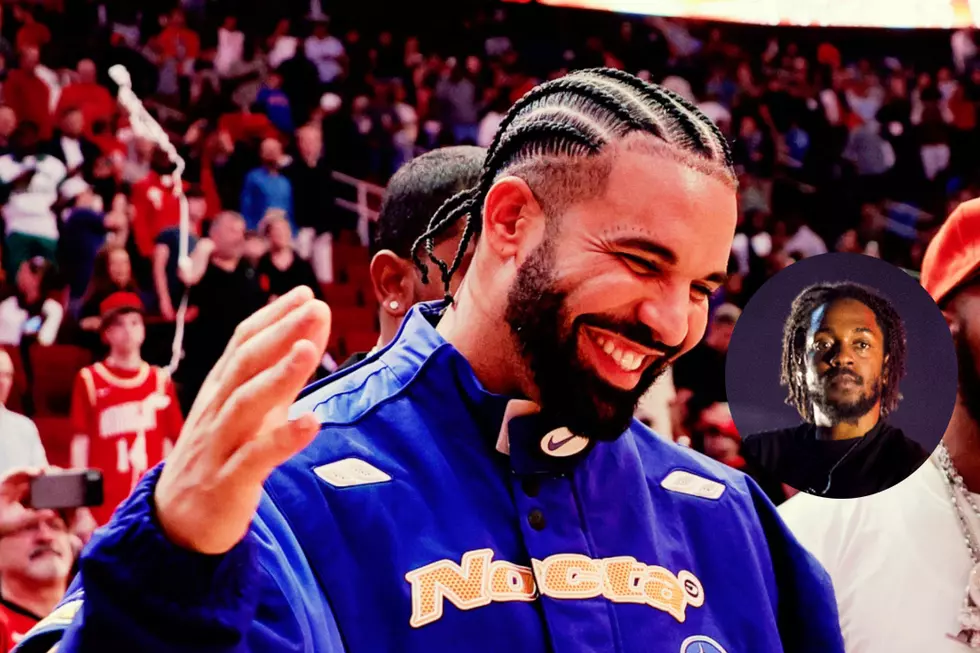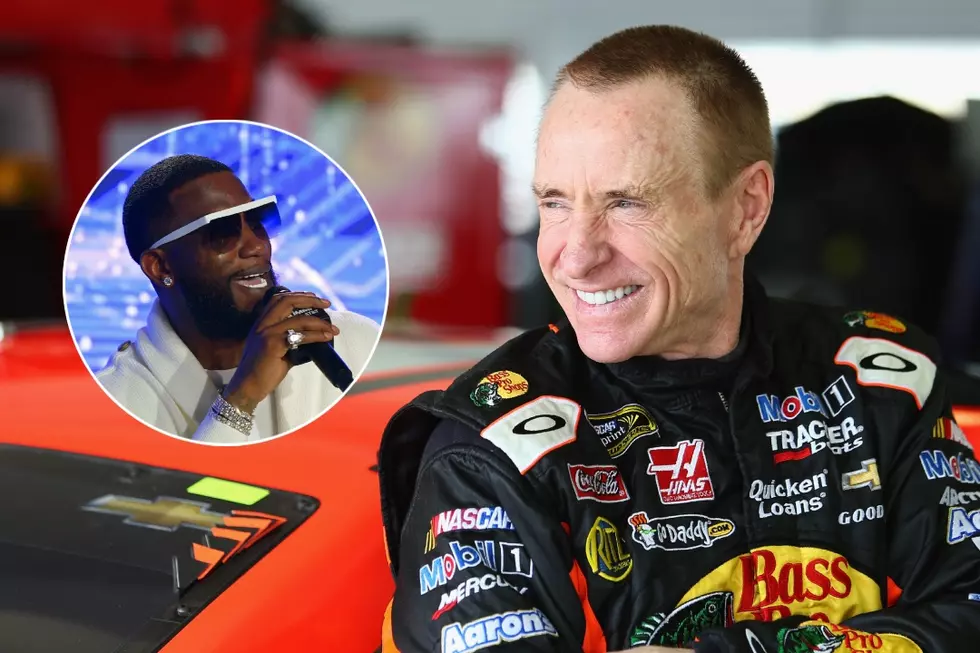Rick Ross
Addicted To The Life
 June 2006. The FYE store in Pembroke Lakes Mall in Pembroke Pines, Fla., is hosting an in-store for the release of DJ Khaled’s Listennn… The Album, along with all the gnawing, slow-rolling pandemonium that entails—considering that the celebrity cast that graced his first couldn’t-miss lead single, “Holla at Me Baby,” is set to show. As the local stars and their attendant plebeians stream in through a back door, low murmurs and whispers graduate to gasps and screams: DJ Khaled is respectfully acknowledged as the mastermind behind the event. Trina receives admiring coos from the braided preteen set. Lil Wayne causes a small stampede among the young ladies in the crowd, accompanied by a chorus of the type of squeals that their fathers would not be pleased to hear. When Rick Ross comes through—bald, bearded and sporting his ever-present wraparound shades—he’s greeted with solemn nods by hard-faced thugs.
June 2006. The FYE store in Pembroke Lakes Mall in Pembroke Pines, Fla., is hosting an in-store for the release of DJ Khaled’s Listennn… The Album, along with all the gnawing, slow-rolling pandemonium that entails—considering that the celebrity cast that graced his first couldn’t-miss lead single, “Holla at Me Baby,” is set to show. As the local stars and their attendant plebeians stream in through a back door, low murmurs and whispers graduate to gasps and screams: DJ Khaled is respectfully acknowledged as the mastermind behind the event. Trina receives admiring coos from the braided preteen set. Lil Wayne causes a small stampede among the young ladies in the crowd, accompanied by a chorus of the type of squeals that their fathers would not be pleased to hear. When Rick Ross comes through—bald, bearded and sporting his ever-present wraparound shades—he’s greeted with solemn nods by hard-faced thugs.
“You ain’t gotta wait till after the album to realize I’m one of the best,” says Ross, who gives his age as 28. “I’m putting you up on it now. As you read this magazine, you are now a Rick Ross fan. Repeat it: You are now a Rick Ross fan. You know why? It’s Rick Ross.” Then he tucks in behind the signing table.
After about an hour, Ross gets up, makes a beeline to the back exit, stops for some pictures, signs some ’graphs for store employees, exits the building, does a mixtape drop from the driver’s seat of his oft-rhymed-about white-on-white 745 BMW, and whips it (whips it) real hard out of the parking lot. He’s hustling. Everyday.
Songs like Rick Ross’ “Hustlin’,” though, don’t come along everyday. In fact, they don’t even come along every couple of years. Since 2000, Rick Ross has been a behind-the-scenes power player in Miami’s music scene, ghostwriting songs for—or, as he and his record company put it, “helping out”—artists such as Trina and Trick Daddy. (Word has it he’s lent a hand to New York radio personality Angie Martinez, too.)
“He definitely did some things for Trina,” says Ted Lucas, the CEO of Ross’ label, Slip-N-Slide Records. “Some songs that she wasn’t able to come up with it on or whatever, and he just had a great idea. He just told her which direction to go in.”
“I always help her with songs,” says Ross of Trina. “I love to see her touring and on the road. So if I come up with a idea right now, I may just call and give it to her, tell her to go to the studio and do whatever she gotta do.”
For all his creative cachet, however, Ross spent a good while languishing on Slip-N-Slide’s roster alongside acts such as Lost Tribe, Tre+6 and Deuce Poppi. On the docket for a full three years, his debut, Port of Miami, finally hit store shelves this August. One of his early singles was supposed to be the Kanye West–produced “Doin’ My Job,” but the song wound up on T.I.’s 2003 album Trap Muzik. In an online interview around the time, Ross blamed the mix-up on paperwork. He later released a scathing diss song, aimed primarily at T.I., in which he referred to Slip-N-Slide as “Slip-N-Slime.” (All parties involved say that any such problems are long-gone bygones.)
 Ross, who walked away from a football scholarship a few weeks into his time at Georgia’s Albany State University because he wasn’t willing to live on cafeteria food and run around on orange dirt, bided his back-burner time by bringing the mixtape scene to his home town. “Mixtapes never existed in Miami history,” recalls Lucas. “Ross was the original of bringing mixtapes to Miami. Rick Ross was the [first] artist that ever made people say, ‘Hey, man, it’s cool to put out mixtapes in Miami.’ He probably done put out 200 songs on mixtapes in less than two or three years.”
Ross, who walked away from a football scholarship a few weeks into his time at Georgia’s Albany State University because he wasn’t willing to live on cafeteria food and run around on orange dirt, bided his back-burner time by bringing the mixtape scene to his home town. “Mixtapes never existed in Miami history,” recalls Lucas. “Ross was the original of bringing mixtapes to Miami. Rick Ross was the [first] artist that ever made people say, ‘Hey, man, it’s cool to put out mixtapes in Miami.’ He probably done put out 200 songs on mixtapes in less than two or three years.”
Still, it wasn’t until last fall, when Ross dropped the Runners-produced “Hustlin’”—with its stuttering, repetitive hook, billowing cloud of gothic organs and catchy lyrical refrains (“I got them muthafuckas flyin’ ’cross the Atlantic”)—that he became a viable commodity as a solo artist. On the song, Ross is light on his tongue—all swing and swagger—stopping, starting, playing with words and establishing himself as a five-star Hustler Emeritus. Skeptics questioned the veracity of his superdealer image (of course, he doesn’t know the real Noriega). Purist critics lampooned his verbal acumen (how you gon’ rhyme “Atlantic” with “Atlantic”?). But everyone else got the point—“Hustlin’” is a moment, more than a song. Even before the greater world got wind of its South Miami breeze, everyone from privileged hipsters to desperate thugs had crowned it a street anthem—the type of tune that will always bring your mind back to 2006, to the first time you heard it, to the first time you saw the fat guy with a bald head and large sunglasses talking about birds, chickens and wholesale yayo.
The release of the song coincided with the end of Slip-N-Slide’s six-year distribution deal with Atlantic Records. “Ross coulda came out on Atlantic,” Lucas says. “But that opportunity wasn’t there for Atlantic, ’cause they couldn’t see what I was talkin’ about.”
Around November 2005, as Lucas began renegotiating the terms of Slip-N-Slide’s contract with Atlantic, “Hustlin’” was taking off, and the offers to pick up the label started pouring in. “Every label that was out there was calling.” Lucas smiles. “Anybody that tells you they wasn’t, they lyin’.” Specifically, Shakir Stewart, senior vice president of A&R at Def Jam—the man who signed Young Jeezy—took a keen interest in Ross. “He was the one that consistently called me everyday,” says Lucas. “‘Ted, don’t do nothing. I got y’all. We gon’ make this happen.’”
The Def Jam idol-maker could see that the Ross project came equipped with what it took to hit in today’s rap game. “What really got my attention is that it was big on the streets already, and the fact of the matter that it wasn’t just a catchy hook and beat,” says Stewart. “The guy really had some substance, some character. Being that Jeezy was my first rap artist that I was affiliated with, I saw the importance of having not only just a talented artist, but a movement. I didn’t think that, doing a deal with Rick Ross, I was just getting an artist. I was buying the alliance of a movement.”
---------------- Read the rest of this feature in XXL’s
Read the rest of this feature in XXL’s
November 2006 issue (#86)
More From XXL









